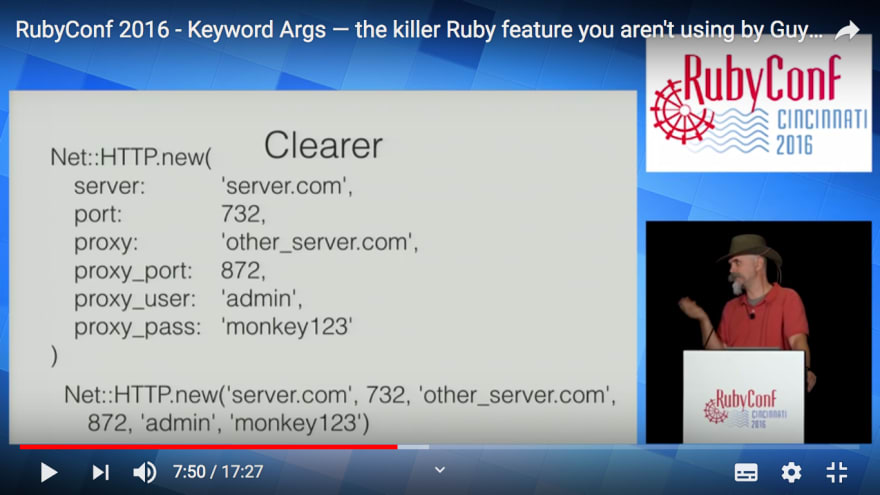In this video the speaker demoed the pros of KWArgs.
In the pic, upper code is obviously more clear.
So when should you use it? I think, when it's hard to identify the params you should use KWArgs.
The usage is simple:
def foo(bar:, baz:)
end
foo(bar: 1, baz: 2)
Do you think so?



Top comments (6)
Didn't watch the video, but what I find interesting is that keyword arguments did not exist until Ruby 2.0, which means before Ruby 2.0, there's a totally different way to do hack it, and you'll sometimes see this in the wild :) (I've encountered this in Rails' DateTime library)
robots.thoughtbot.com/ruby-2-keywo...
Yes, it simplify code. Very useful.
Seems right as shown, but perhaps only for
.new?For any other method:
If the parameters are related, could they form a class and be passed as an object?
If not, does the method lack a unified purpose?
Right, better params no more than 3. If more than 3 maybe should use hash or object.
How does it handle extra arguments? Does it ignore it or throw an exception?
ArgumentError